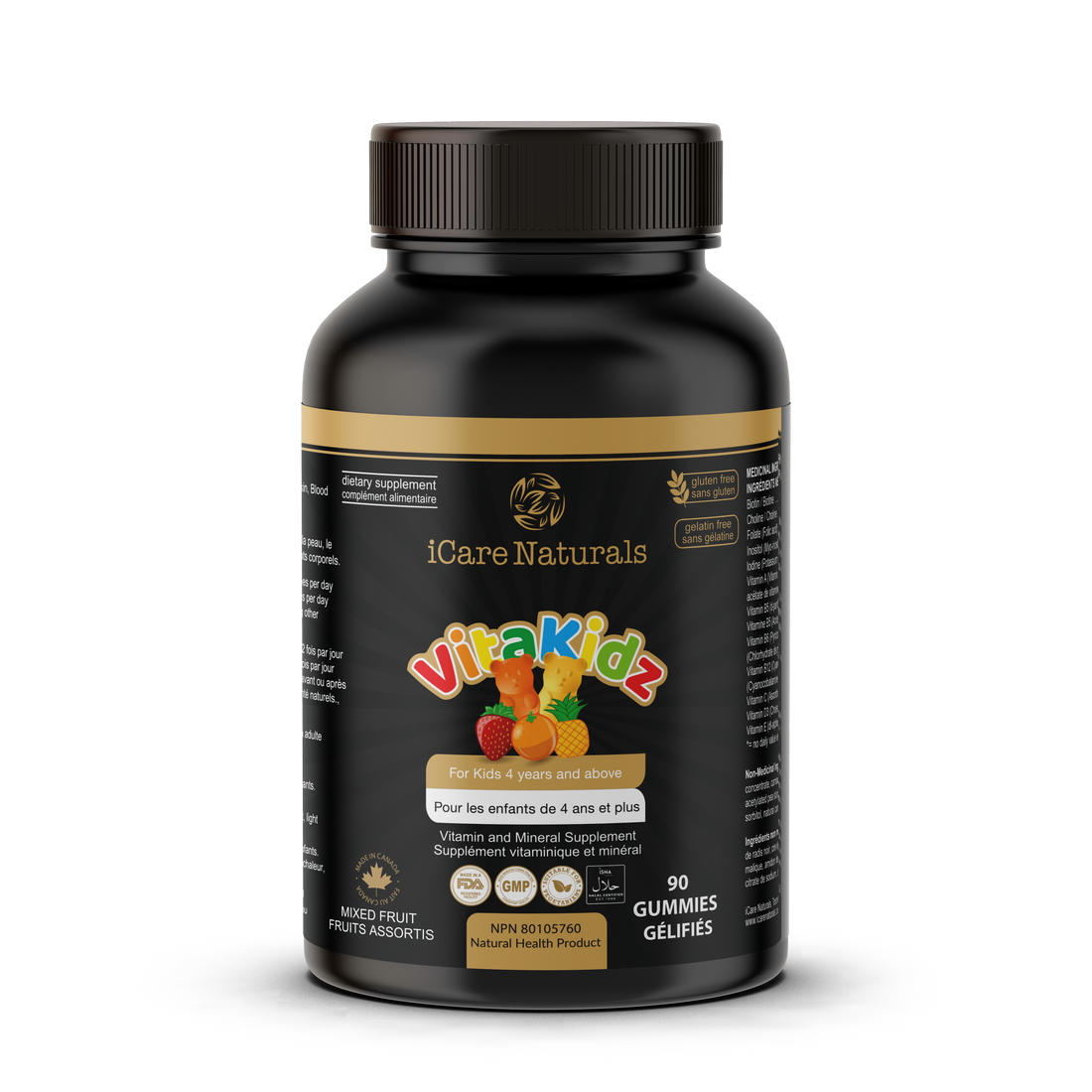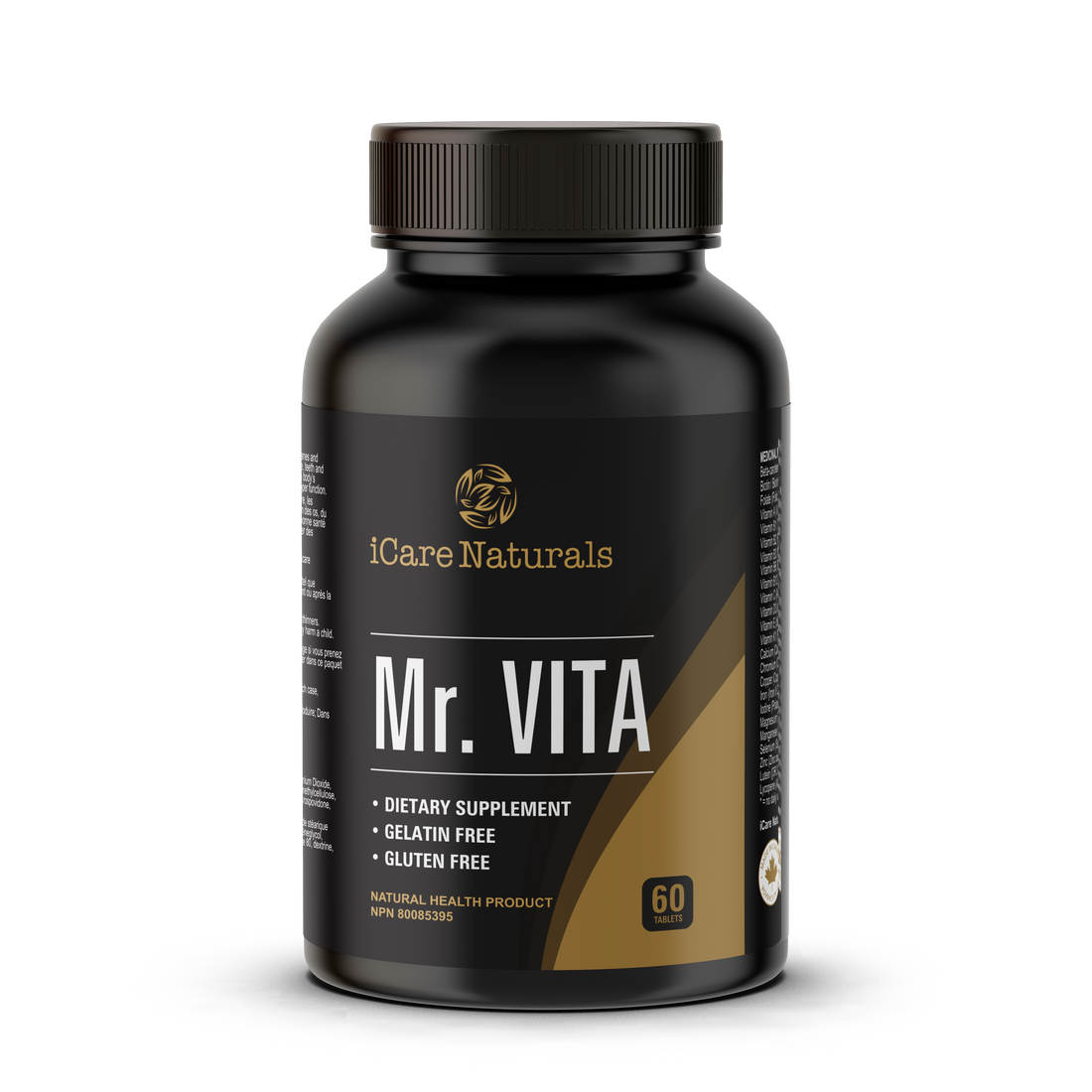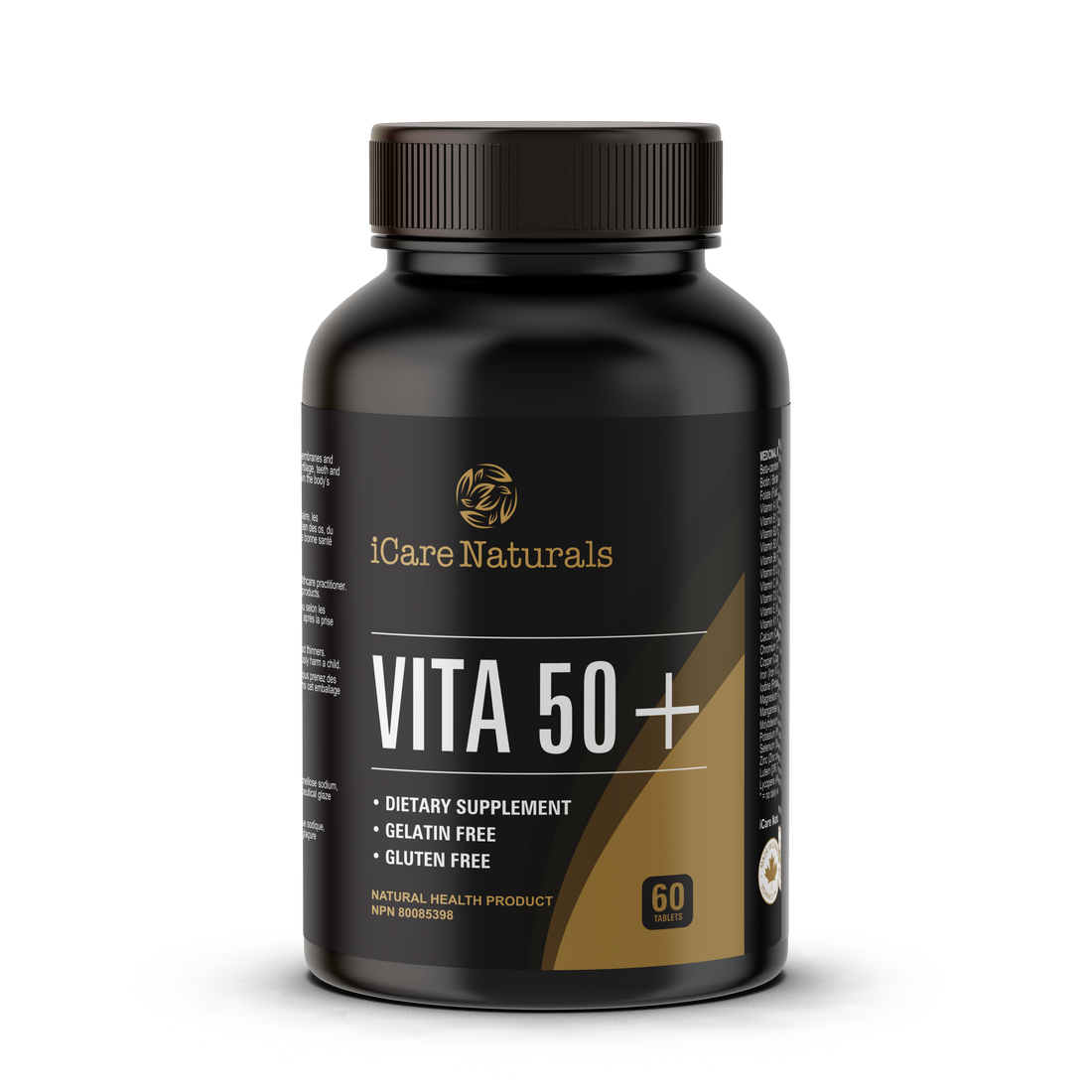Finding the right multivitamin can feel daunting. Many women, keen to support their overall health, consider adding one to their daily routine. But with so many options on the market, how do you pick one that truly suits your unique needs? To understand this question, you need to know why women's bodies have specific nutritional requirements.
A multivitamin is not a magical cure. It also cannot replace a balanced diet. Instead, it acts as a valuable nutritional safety net. It helps to fill any potential gaps, even for those who eat very carefully. For women, these gaps can be quite important due to different life stages, hormone changes, and specific physical demands. Choosing a good multivitamin means picking one that matches these unique needs. It ensures your body gets the essential micronutrients it needs to thrive.
If you also want to know about good multivitamins for women, go through this blog post to learn everything from scratch:
The Nutritional Needs Of Women
A woman's body undergoes remarkable changes throughout her life, from puberty and potential childbearing years to menopause and beyond. Each phase brings distinct nutritional demands that differ significantly from those of men or children. Understanding these unique requirements is the first step in identifying what constitutes a "good" multivitamin for women.
Reproductive Health
During childbearing years, women require increased amounts of specific nutrients to support menstrual cycles, potential pregnancy, and breastfeeding. For instance, iron needs are higher to compensate for blood loss during menstruation, and adequate folate is crucial for preventing neural tube defects if pregnancy occurs. These nutrient levels are essential for general vitality, even for women not planning pregnancy.
Bone Health
Due to declining oestrogen levels, women are at a higher risk of developing osteoporosis, particularly after menopause. Therefore, sufficient calcium and vitamin D intake is absolutely vital from a young age to build and maintain strong bones throughout life. A multivitamin can contribute to meeting these daily requirements, especially if dietary intake is insufficient.
Hormonal Fluctuations
The balance of hormones can affect energy levels, mood, and even nutrient absorption. A comprehensive multivitamin can provide a baseline of support for these processes, helping the body manage these changes more effectively.
Energy and Vitality
Women need energy to manage their multiple responsibilities. B vitamins, for example, are essential for energy metabolism, and sufficient levels can help combat fatigue and support cognitive function. Recognising these specific needs helps tailor a multivitamin choice that truly supports a woman's overall health journey.
Essential Nutrients to Look For in a Women's Multivitamin
Certain vitamins and minerals are particularly important for women's health when assessing different multivitamin formulations. Prioritising a multivitamin that includes these nutrients appropriately is crucial for comprehensive support.
Folic Acid
Folate, or its synthetic form folic acid, is perhaps one of the most critical nutrients for women of childbearing age. It plays a vital role in cell growth and development, and its adequate intake before and during early pregnancy is essential to prevent neural tube defects in the baby. Even if pregnancy isn't planned, folate is vital for red blood cell formation and overall cellular health. Look for a multivitamin that provides at least 400 micrograms (mcg) of folate, and consider the more bioavailable form, L-methylfolate, if possible.
Iron
Iron deficiency anaemia is more common in women, especially those who menstruate, are pregnant, or are breastfeeding. Iron is fundamental for producing haemoglobin, a protein in red blood cells that carries oxygen throughout the body. Symptoms of low iron can include fatigue, weakness, pale skin, and shortness of breath. A good women's multivitamin typically includes iron, but the dosage should be carefully considered based on individual needs and dietary intake, as excessive iron can also be harmful.
Calcium & Vitamin D
Maintaining good bone health is essential for women. Calcium is the primary building block of bones, and Vitamin D is necessary for calcium absorption and bone mineralisation. Without enough Vitamin D, the body cannot effectively utilise calcium. Many women do not get enough calcium from their diet alone, and Vitamin D deficiency is widespread, particularly in countries with less sunlight, like Canada, especially during winter months. Look for a multivitamin that includes both these nutrients, ideally with Vitamin D in its D3 form, which is more readily absorbed.
Vitamin B Complex
The B vitamins including B1, B2, B3, B5, B6, B7, B9, B12) are a group of essential nutrients that play crucial roles in energy metabolism, nerve function, and red blood cell production. They are significant for women dealing with stress, fatigue, or hormonal fluctuations. Vitamin B12, for example, is vital for nerve health and energy, and its absorption can sometimes be an issue, especially for vegetarians, vegans, or older adults. A comprehensive B complex within a multivitamin can support overall vitality.
Magnesium
Magnesium regulates various bodily functions, including muscle and nerve function, blood glucose control, and blood pressure regulation. It's also known for its role in bone health and can help alleviate premenstrual syndrome (PMS) symptoms, such as cramps and mood swings. Many women do not consume enough magnesium through their diet, making its inclusion in a multivitamin highly beneficial.
Iodine
Iodine is essential for thyroid hormone production, which regulates metabolism and energy levels and plays a critical role in brain development during pregnancy and early childhood. While iodised salt is a common source, ensuring adequate intake through a multivitamin can be important, especially for women who limit salt intake or follow certain diets.
Antioxidants
Antioxidants help protect the body's cells from damage caused by free radicals, which contribute to ageing and various chronic diseases. Vitamins C and E and minerals like selenium are powerful antioxidants that support immune function, skin health, and overall cellular integrity. Including these in a multivitamin helps provide a broad spectrum of protective benefits.
3 Factors to Consider When Choosing a Multivitamin
Beyond the specific nutrients, several other factors determine a multivitamin's overall quality and suitability for women. Paying attention to these details ensures you're investing in a product that genuinely supports your health.
Bioavailability of Nutrients
Bioavailability of nutrients refers to how well your body can absorb and utilise the supplements' nutrients. Some forms of vitamins and minerals are more bioavailable than others. For instance, look for methylated forms of B vitamins like methylcobalamin for B12, chelated minerals like magnesium glycinate or zinc picolinate, and Vitamin D3. These forms are generally better absorbed and more effective than their less expensive counterparts. A good multivitamin prioritises these bioavailable forms to ensure you get the most out of each dose.
Quality Assurance
The supplement industry is not as strictly regulated as the pharmaceutical industry. Therefore, look for certifications from organisations that verify products contain what they claim on the label and are free from harmful contaminants like heavy metals, pesticides, and microbial impurities. iCare Naturals is one of the best brands for women's multivitamins. They understand the unique nutritional requirements of a woman’s body and focus on creating formulations that meet these specific needs.
Absence of Unnecessary Additives
A high-quality multivitamin should be free from artificial colours, flavours, sweeteners, and unnecessary fillers. These additives offer no nutritional benefit and can sometimes cause adverse reactions in sensitive individuals. Opt for products with a clean label and minimal ingredients beyond the essential vitamins and minerals.
Conclusion
Choosing a "good" multivitamin for women means selecting a product that thoughtfully addresses the unique nutritional demands of a woman's body throughout her life. It's about looking beyond the flashy packaging and focusing on the quality, bioavailability, and appropriate dosages of key nutrients like folate, iron, calcium, vitamin D, and the B vitamins.
By prioritising reputable brands offering transparent, third-party tested formulations, and understanding how to incorporate the supplement effectively into your daily routine, you can truly unlock the supportive benefits a multivitamin can offer. Remember, this is an investment in your long-term health, complementing a balanced diet and healthy lifestyle. With careful consideration and professional guidance when needed, you can confidently choose a multivitamin that empowers you to feel your best every day.










